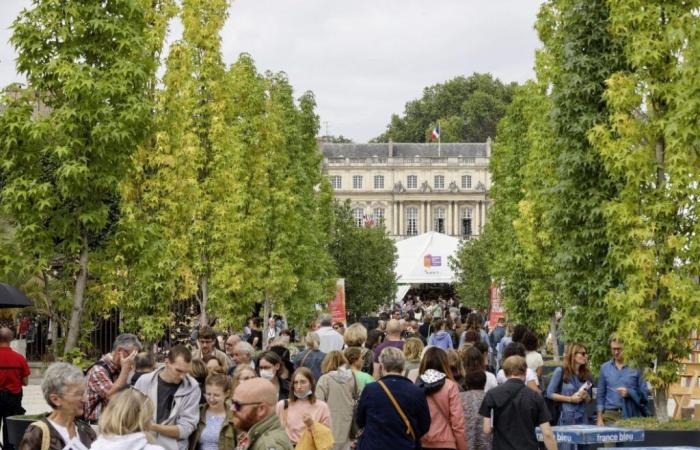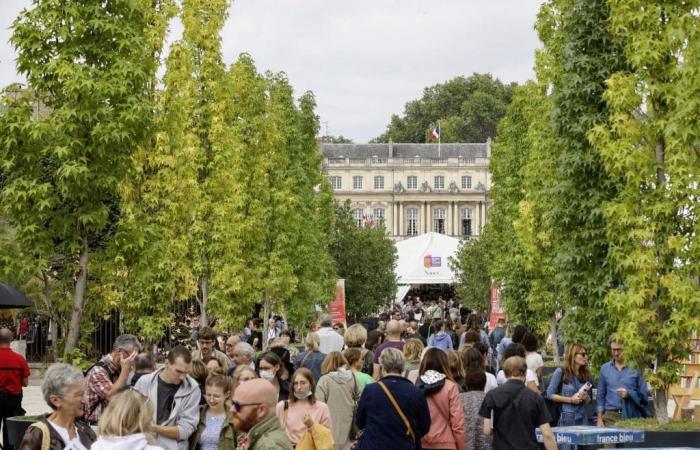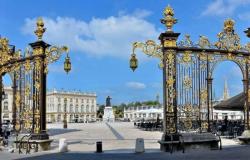© City of Nancy
Between complex reality, frictions, worries or dreams of change, the lowering of the public debate which is increasingly mediocre and the uncertainty of time passing by leaving us one day and at an unknown time on the bank, if life were a novel, it would undoubtedly be written in Nancy where the book plays a central role. The column by Pierre Taribo.
A city with a justified cultural reputation, the ducal city has taken a passion for the biggest literary fair of the new school year. Is this an opportunity for it and its inhabitants to find refuge there or will concerns fade away? Those of elected officials faced with budgetary uncertainties, construction delays, stagnating projects, difficult and sometimes risky choices (why not leave the Place de l’Arsenal cleared of the hideous platform that disfigured it as it is now?); those of the inhabitants, many of whom wonder if behind the theories and promises that sometimes go up in smoke like the debris of a crash, there is a better future? Torments that take us back to the chronicle of asphalt: by which we mean all the nettles of the urban landscape, announced as having to be appeased.
ALSO READ. Astrid Canada, director of the Hall du Livre in Nancy: her voice in the chapter
For the moment it is still figurative art, with the works, the temporary public transport network, the real or somewhat artificial consultations since the staging is largely already completed. We only ask to enter the sacristy of the completed transformations but admit that with the upheavals of the Place de la République and other inevitable construction sites but which generate so much disruption and blocked traffic, the church is double-locked.
In politics, we are often satisfied with the supposed value of the discourse, a bit as if weaving stories whose common point is a calendar to be defined and funding to be found already threw a bridge to reality. A link is worth two you will have it: the programs always have a dotted part.
To escape from uncertainties and gloom, strolling through bookstores is a good remedy. The one at Livre sur la Place is huge and full of specificities. You can feel the vibrations there, the spread of reading is not just a slogan but an established fact. For all generations, it is a school of good reading where the future of the publishing world is not a big question mark.
Success has its downside, there is a housing crisis. The crowd presses, jostles in the aisles of the marquee, writers, essayists, historians, from here and elsewhere, known, recognized or to be known, chain the dedications. Marathon for many with as a bonus questions, discussions; less tense exercise for others, the mixing works and is the salt of these days to which must be added the rush towards the debates, conferences and round tables.
“Reading is like writing, a precious freedom”
Confidences, humor and reflections: mysteries are lifted, explanations emerge freely, readings captivate. The feelings given to live are strong. Whatever the tastes that lead each person towards literature, history, philosophy, poetry, politics, each person is immersed, one foot in the lived experience and the mind higher up. And what can be said about the example given by Edgar Morin, except that having lost his spring to refer to his last book, the year brings forth on the edge of autumn a sequence to be archived, a rare moment when the exemplarity of a more than centenarian imposes itself on us with his humanism, his perception of the present, his commitments, his freedom of tone.
Reading does not necessarily soothe souls, perplexities, annoyances and reasons for desolation that have been quite numerous for months, but reading is like writing, a precious freedom that must be preserved. Literature awakens conscience, teaches tolerance and plurality. It increases cultural influence, allows us to absorb invigorating vitamins and to make our imagination boil.
We will not write here the chronicles of the asphalt where there would nevertheless be material to challenge, to note, to deplore or to salute. Immobile city, broken down, which seems to be disconnected, without ideas and not up to the challenges which await it or city in transition which is preparing to advance more quickly and in the direction of urban life as it must be envisaged today?
The debate is open. It will stretch out, accelerate, and become more heated, between now and the 2026 municipal elections, the campaign for which will soon begin. The clock is ticking, the reforms carried out or marking time will be scrutinized, the controversies surrounding taxation, the acceptability rate of which is questionable, will rebound. That’s the rule of the game. But before the opposing camps rev the political engines, there was the suspended time of the Book on the Square that everyone agrees on. And unlike public life, it’s not a fairy tale.







